
Culture Building: 8 Local Link Building Tactics Beyond Business Listings
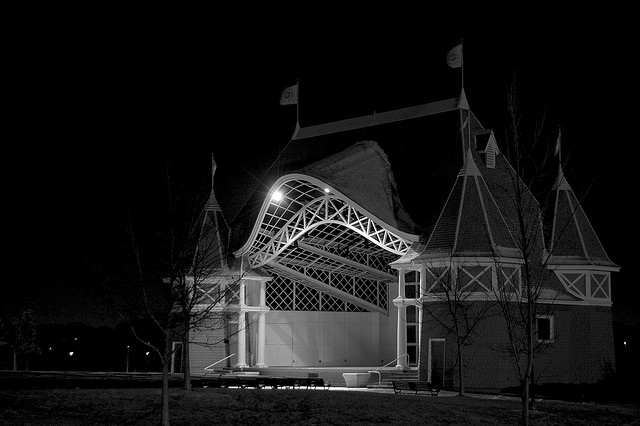 Image Credit: ScottDodge |
The culture of your locality provides endless opportunities for local attention. And attention means links, press mentions, and ultimately, targeted customers. As internet marketers, engaging with our local culture provides us with a great opportunity to build relationships, and ultimately, links. Citations and links are great from Internet Yellow Pages (IYP) sites, but as we all know, they don’t seem to drive much traffic. We can do better.
Why Local?
We keep seeing algorithm updates focused on devaluing links that simply aren’t relevant. A key benefit of local linkbuilding is that these links are almost entirely relevant. By learning the four functions of local link building, as well as eight tactics for executing a local linkbuilding strategy, you’ll be armed with a solid method of sourcing relevant links by doing good things for your community.
The Four Functions of Local Link Building
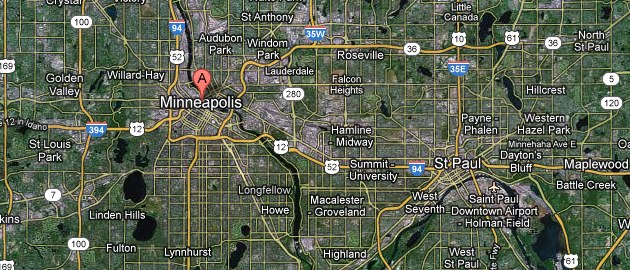 |
1) Driving Relevant, Targeted Traffic
If your client is a small business with a brick and mortar shop in Minneapolis, their customers are probably in Minneapolis. Why not target your link building efforts locally? If your client is a restaurant, why wouldn’t you want them to get written up in as many locally-focused publications as possible?
2) Building Strong Links from Authoritative Domains
If these local publications are writing about you, and you have a website, it’s only natural that they’d link to you. And, as we all know, some of the strongest domains out there are local newspapers and publications, as they traditionally develop continually awesome content. I’m all for optimizing these press mentions, as squeezing every drop of value out of these links is traditionally something that is rarely thought of by the business owner.
3) Building Relationships with Authoritative Local Sources
When you get written up in an authoritative local source, you’ve probably made a great relationship with the author, and better yet, their organization. Relationship building tends to have exponential results, as you never know who that author is connected to. Many others have mentioned the topic of relationship building as an effective link building tactic, and this is no different.
4) Stimulating A Hyperlocal Economy
We all know that keeping your money in the local economy is bound to stimulate said economy. I think we’re going to be seeing a strong resurgence in the small business, if we haven’t yet already. Without getting too political, I’m of the mind that small businesses are the backbone of our economy. As people get fed up with the way that the giants of the world do business, they’re going to start voting with their dollars.
When you allow small businesses to compete with these titans of industry by absolutely dominating the SERPs, you’re bound to drive more customers (and therefore dollars) to that business.
Knowing this, how do you source this attention?
There are quite a few tactics that are very effective and worthwhile. Please note that the by nature, these tactics are resource intensive – they require you to build relationships, talk with people, and in some cases, change the way you do business. If you’re looking for a quick win, look elsewhere – there’s no shortage of offerings in that realm.
8 Local Linkbuilding Tactics
I’d like to preface these tactics with a mention of the Citation Labs Link Prospector tool, which offers a ton of functionality for scaling your link prospecting activities. Rather than doing all of this manually, you can create a custom report and build search queries based on the prospecting tips listed below. You are then able to export your report as a .csv, allowing you to efficiently slice and dice through the data.
Read my review of the tool here.
1) Building Links with Awesome Photography
 Image Credit – Threyda |
Do a quick search for Minneapolis Pictures. There’s no shortage of strong domains with pictures of the city. Why don’t you start taking pictures in your neighborhood, or around town, and submit them to these sources? Many of them provide back links to the source, or even the ability to publish an image from your website on their domain. Optimize the alt text, and boom, you’ve got a link with targeted anchor text.Image Credit – Threyda
Want to kick things up a notch? Find big local events, and take a bunch of pictures of said event. Contact someone on the administrative side of the event, and ask if you can provide a few pictures, with a link back to your site for more of your images from the event. The great thing here is that you don’t even need to worry about anchor text – just a generic URL or business name as anchor text will do wonders.
Bonus points if you submit images to sites like Pinterest, or other social sources to effectively build second-tier links to boost the value (and potential targeted traffic) of your link.
Are you terrible at photography? Turn to Flickr, and search for local photographers that have taken similar pictures of events. Barter with them, ask nicely, or offer them financial compensation for letting you use their images. Or, better yet, just hire a local photographer.
Prospecting tip: Do a Google search for [locale (pictures | photos)], or (pictures of) [your city/neighborhood/town/metro area]. To find events, search for [locale (events | calendar | (season) guide)]
2) Building Links by Making Something Awesome for your Community
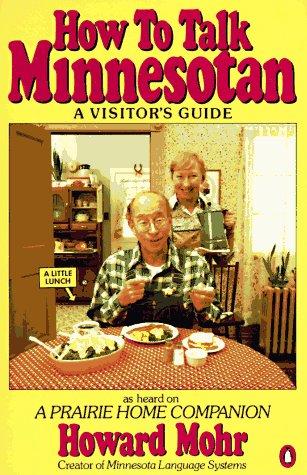 Image Credit – OpenLibrary.org |
Develop a piece of content, an infographic, hell – even a mobile app that is purely catered to something in your community. Host the content on your site, and promote the crap out of it by pitching it to the local press.
The key here is to make something that’s truly awesome. Is your locality legendary for their annual chili festival? Are you the most bike-friendly city in the nation? Do you produce the most amount of flour in the world?
Find out what makes your locale different, and more importantly, something that invokes emotion. People love reading about things that they are the best at. Conversely, taking a hilarious spin on something that they are the worst at can be an effective angle.
To get your brain working, think about how an entire media empire was founded on the fact that Minnesotans talk funny.
Prospecting tip: If you’re unfamiliar with what distinguishes your target locale, try these queries: [locale visitor information], [locale quirks], [locale culture], [locale things to do], [locale accents], and the like.
3) Building Links by Featuring Others in your Community
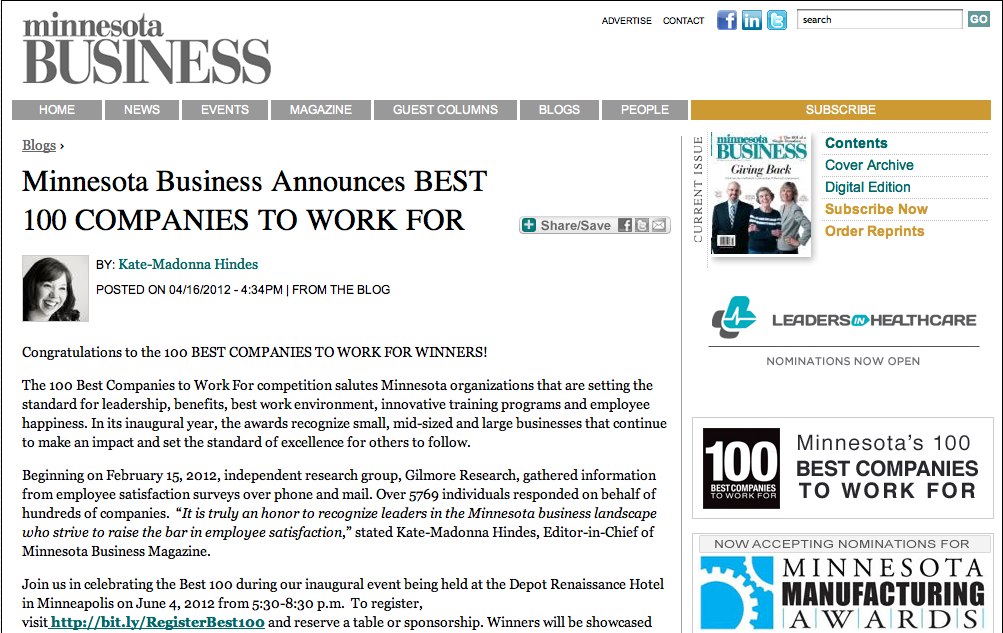 Credit: MinnesotaBusiness |
People, businesses, and organizations love to be flattered, mentioned, and talked about. Use this to your advantage, and consider doing a piece of content surrounding those in your community doing something awesome. Ideally, you want to focus on something that is flexible and can be easily shared throughout various sources. You also want to target those that can promote this content themselves.
For example, you could throw together a blog post about top local reporters in your area that are truly making a difference. Or, cover individuals, businesses or organizations that are changing the way your city does something. Preferably, focus your efforts on something everyone loves. Or, if your angle is being controversial, do something everyone hates.
The key here is to develop a piece of content that attracts not only links, but additional write-ups about your content. I once wrote a post like this, and I attracted a handful of .edu links, as people that I happened to write about were alumni of universities that did a piece on them. You just never know with this stuff.
Prospecting tip: try these queries to find pockets of local opportunity – [locale college alumni], [locale press association], [locale bloggers], [locale sports teams], [best companies to work for in locale], [locale entrepreneurs], [locale nonprofits], [locale intitle:”for media”], [locale intitle:”of the year”], [locale intitle:”contact us”], [locale intitle:”press releases”]
4) Building Links with Travel Guides
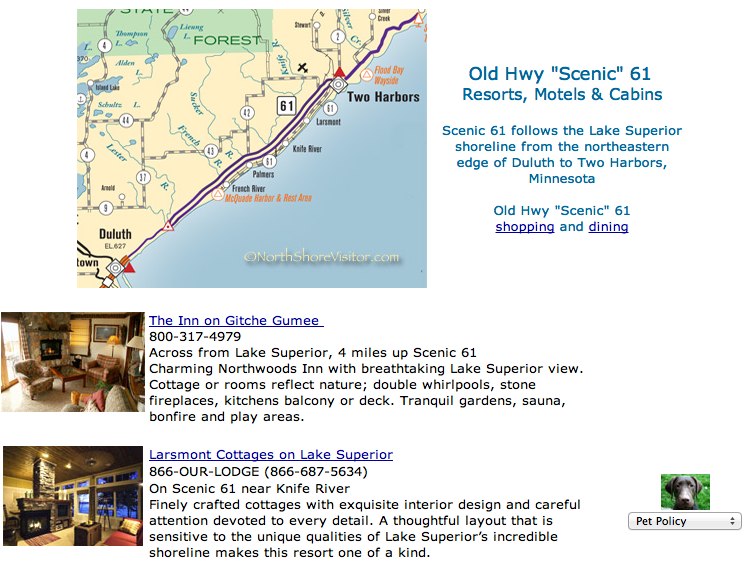 Credit: NorthShoreVisitor |
Check out the Northeast Minneapolis page on WikiTravel – yet another strong, relevant domain. There’s a strong focus on interesting local businesses on this page. Of course, this is only applicable to businesses that travelers would be interested in.
All of the businesses that are listed have links back to their respective websites. You’ll see that these are nofollow, and if that alone stops you, then start reading up about diversifying link types, and more importantly, marketing.
Wikitravel sites are completely user-edited, so develop a relevant tagline, and build a strong link and a citation. Beware, if you try to game the system here, you’ll probably be banned rather quickly.
Prospecting tip: do a Google search for [locale (travel guide | visitors guide | tour guide)].
5) Building Links with Neighborhood Sites
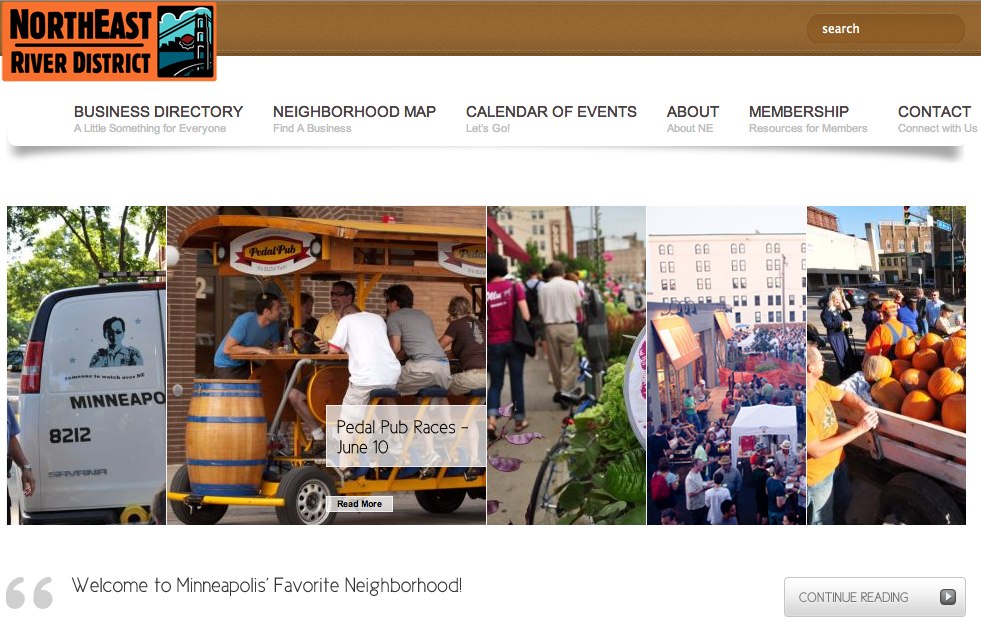 |
There’s no shortage of neighborhood business associations, as I’m sure you’re aware. If you’re in a sizable locale, it should be pretty easy to find one in your neighborhood.
Take my neighborhood for example – Northeast Minneapolis. This site covers news, events, businesses, and the like. They have a business directory for members, with followed links. Membership isn’t the cheapest thing in the world, so if budget is a strong concern, you’ll have to think creatively here.
Their last news piece was published in November of 2011 – six months ago at the time of this writing. Pitch a post, a neighborhood infographic, pictures of an event, or host something at your location. Generally speaking, talk with the person that runs it, and see what would be valuable to them – build those relationships. Again, a link to your site, in this case, would be absolutely relevant.
Prospecting tip: do a Google search for [neighborhood (association | website | organization)]
6) Building Links with “Local Scene” Sites
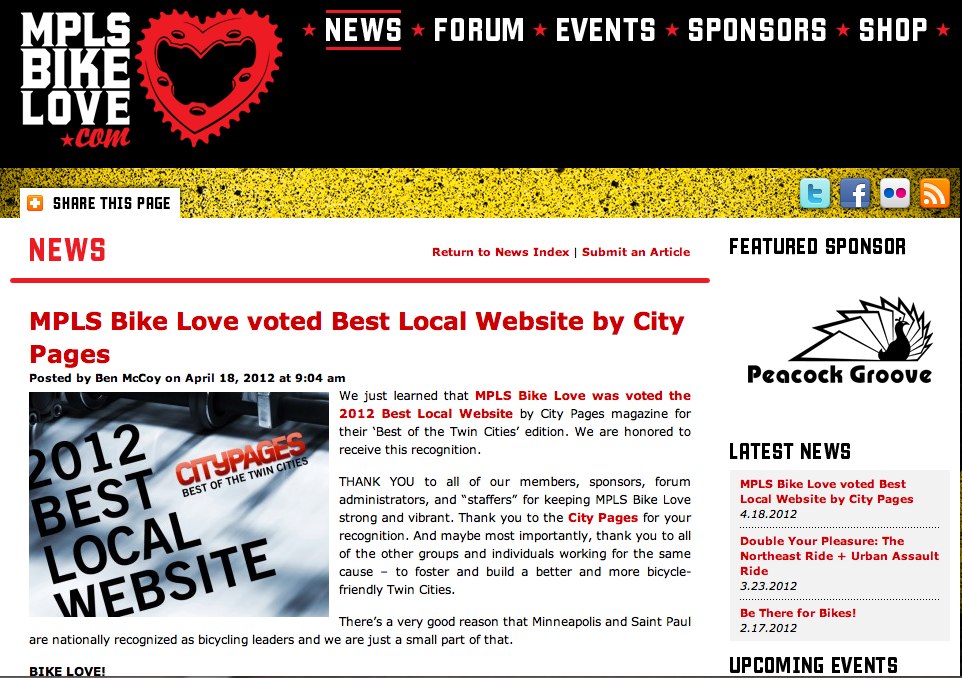 Credit – MPLSBikeLove.com |
This will be totally dependent on your locale, but for simplicity’s sake, let’s say your client is a restaurant. There’s no shortage of sites in this niche that cater to exactly this. In about three seconds, I came up with Heavy Table, a food section in a local publication, and mspfoodies.com. These are all sites that are devoted to the food scene in my area.
Contact them, and invite them to review your restaurant. Offer a deal for their readers. Develop a neighborhood offering – like Northeast Muffins, and let them know that you’re offering this novel menu item.
Prospecing tip: try these queries to find local culture sites – [locale music blog], [locale food blog], [locale downtown blog], [locale indie blog], [locale sports blog]
7) Building Links with Daily Deals Sites
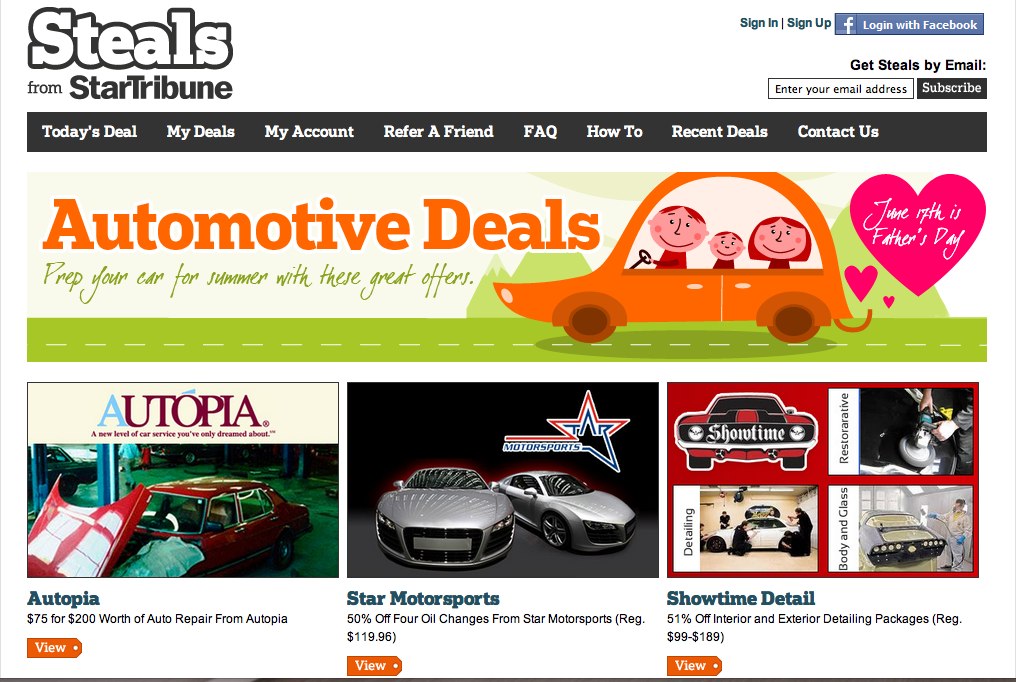 |
Since Groupon revamped the way we find deals, there have been no shortage of daily deals sites popping up. Now, we can debate the effectiveness of these daily deals campaigns all day long, but there are tons that are dedicated to local areas.
Find a daily deals site that is run by a local newspaper to maximize the value of your link. For example, steals.startribune.com is a fantastically strong domain. Additionally, by working with a local newspaper, you’ll be building contacts and relationships.
After your daily deal is over, pitch an article to the paper about how great their daily deals campaign was for your business.
Prospecting tip: do a Google search for [locale] (daily deals | coupons | discounts)].
8) Building Links with Patch.com and IYP Sites
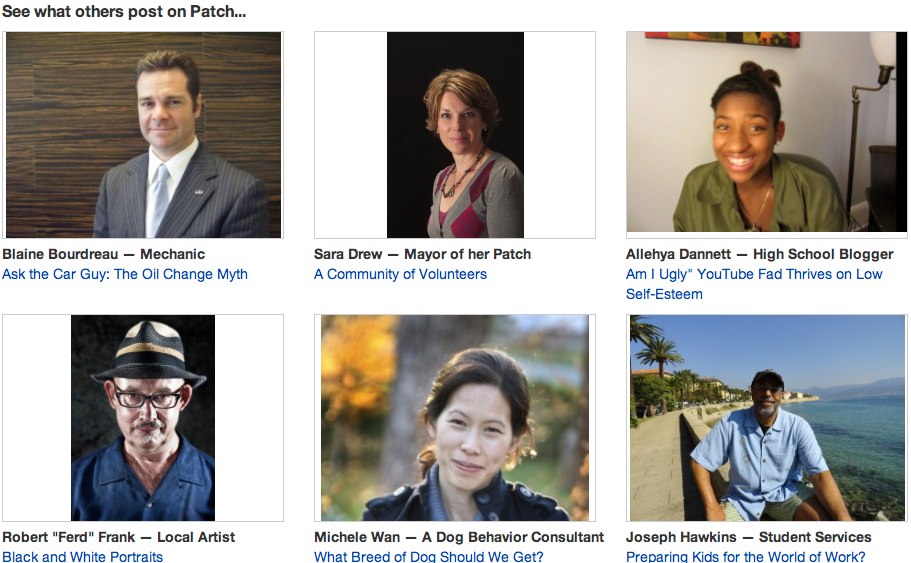 |
A seemingly little-known fact is that Patch.com offers followed links from a really strong domain. Additionally, these sites are generally very high traffic, and accept articles from just about anyone. If you’re lazy, just get listed in their business directory – you’ll get a strong citation, and a followed link.
If you want to kick things up a notch, develop some content for your local Patch. You can even become a neighborhood editor, and kick out a ton of content.
Additionally, a good deal of Internet Yellow Pages sites offer followed links – such as Hotfrog and Kudzu.
One of the best tools for finding IYP sites is the fantastic Local Citation Finder by Whitespark. Simply list your business, and build your link.
4 Tools for Tracking the Success of Your Initiatives
The fine folks at Thunder SEO wrote a killer post on this topic – 6 Ways To Track Your Linkbait Success. Rather the repeating everything they said, I’ll give a general overview of my recommendations on effectively tracking the success of your link building initiatives.
1) Linkstant
Linkstant is a killer tool that automatically notifies you when someone clicks through a link to your site. It’s really simple to set up, and it will send you email and/or text messages when you get new links. The real-time nature of this tool allows you to move quickly once a link has been established. Setup is really simple: all you have to do is add a few snippets of code to your pages.
2) Topsy Alerts
Topsy is a fantastic tool that shows social media analytics. Set up an alert to be emailed when someone shares a link to your site over social media, or writes an article about you. Set up two alerts – one for the title of your content, and one for the URL. (Update, October 2018: Sadly, Topsy has shut down).
3) Google Alerts
Google Alerts are similar to Topsy alerts, and you’ll want to set up an alert for the title of your content. Again, you’ll be emailed an alert when someone mentions your business.
4) Link Monitoring Tools
I also like to use a blend of ahrefs, Open Site Explorer, and Google Analytics. For ahrefs, you can view Yahoo Site Explorer-esque reports on recent links to your site.
Open Site Explorer moves a bit more slowly, so check up on it when they update the index. Pro tip – SEOmoz runs a calendar to show all of their planned index updates – so add these to your personal calendar so you know when to look.
For Google Analytics, keep a close eye on your referrers in the Traffic Sources pane.
Other Great Local Link Building Resources
Here’s a few other resources that are very helpful when it comes to building local links:
35 Local Link Opportunities You Missed – SEER Interactive
44 Local Link Building Queries for Citation Prospecting and Opportunity Analysis – Ontolo
Local Link Building Strategies – Linkbuildr
Using Location Data for Local Content Creation – Slide Deck from Ian Howells
Conclusion
In closing, local link building is an effective tactic that doesn’t seem to be mentioned often. Perhaps it is too resource-intensive for some, or perhaps the nature of many agencies simply don’t allow for the level of interaction that these tactics require. However, you should know that the value of these links can be incredibly strong, and that they all appear to be completely natural, contextual, and relevant in the eyes of Googlebot and users alike.
When you contribute to your local culture, you’re not only putting yourself in a good position to build quality links and citations – you’re building your brand in the eyes of your target market.
We all know where link building is going, and we all know when we’re spending time on a tactic that is easily tracked and could be completely written out of the algorithm in the future. It’s time to think local.


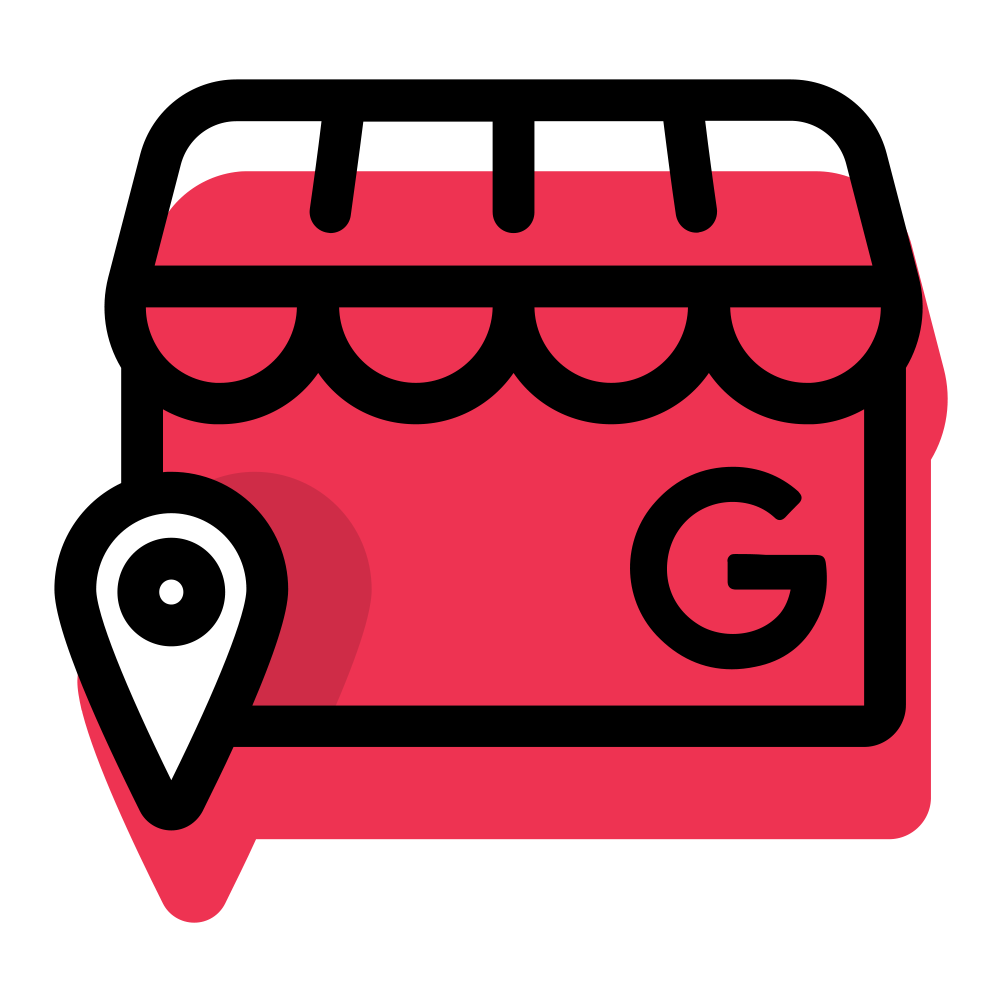




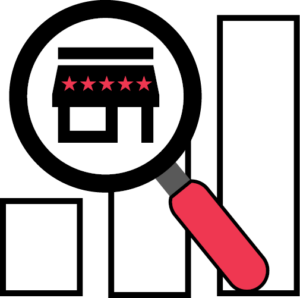
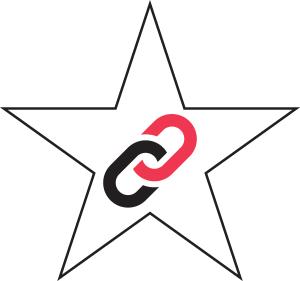

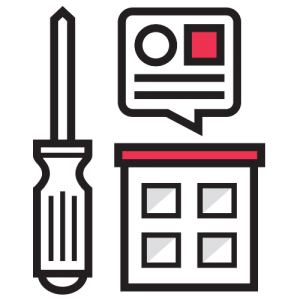


20 comments on “Culture Building: 8 Local Link Building Tactics Beyond Business Listings”
Just wanted to let you all know that I’ll be monitoring the comments pretty frequently – so feel free to ask questions and I’ll do my best to respond!
The man said it “I’m Scott Dodge, and I’m addicted to local search.” Awesome job.
Love the post man, passing this along to colleagues for sure!
NIce, Scott! Very comprehensive. I guess I need to get my camera out and get to work.
Scott, what an awesome post! There’s some really great tips in here.
I’ve also got to admit that I have not heard of Linkstant so I’m going to check it out.
Thanks for the kind words, fellas! Glad you enjoyed it!!
Hey Scott,
This is a superb post. Thanks for taking the time to write.
One reason I love this set of techniques is it’s a force-multiplier for any blogs run by SMBs. Even business owners who know that a blog can help set them apart in local search often *don’t know* exactly what to write posts ON. This makes it a lot easier: one week you take a really nice picture, write a tiny blurb about it, and that’s your post (technique #1), another week maybe you do a post on a local business you really like (technique #3), etc.
In other words, to me, the blog would serve as a perfect “lab†to test out each of your 8 suggestions – to see which techniques bring you the most link mojo.
Question: what’s been your experience so far with EventSeekr.com? I imagine you’d get links from holding some community-wide event on there. I’ve also noticed that you get a really cool “Upcoming events†box on your Google Places page if you hold an event through EventSeekr. (I wonder which technique of the 8 this would fall into?)
I’m already looking forward to a “sequel†to this!
Phil,
Glad you enjoyed it!
GREAT thinking about adapting these tactics into an editorial calendar – that’s a fantastic idea.
Regarding EventSeekr, I don’t have much experience with it – but I’ll definitely be looking into it further. However, I have built links with CitySeekr (also a wCities product) by using tactic #1.
That’s really interesting about the “Upcoming Events” box for events held through EventSeekr – I hadn’t heard of that. Do you have any places pages to show me how that looks?
Hey Scott,
If you go to the Places page of the House of Blues in Boston, you’ll see the “Upcoming Events†area.
I took a screenshot of it:
http://www.localvisibilitysystem.com/pics/upcoming-events-google-places.jpg
Obviously, in the case of House of Blues there are a number of other sites that seem to drive the “Upcoming Events.†But I know that if you go to Eventseekr and browse the categories at the top of the page, you can see the businesses that are holding “events,†and then of course you can work backwards by going to their Places pages.
The businesses that have “Upcoming Events†tend to be tourist-y or entertainment-related, but at least on Eventseekr, there’s a “More Categories†area, where I believe businesses of pretty much any kind can hold an “event.â€
Anyway, all in the name of local visibility and getting local links 🙂
Thanks for the intel on CitySeekr (which I’ll have to check out), and again for the excellent post!
Phil,
Thanks for sharing that – I had heard about event calendars working their way into places pages, but hadn’t quite seen one in the flesh yet.
I’ll have to add this to my local toolbox. And best of luck with CitySeekr – another one that I’ve gotten links from is Schmap.com.
Thanks again for the comments, Phil!
Great article!
Thanks for sharing such valuable insights, you uncovered more than one hidden gem.
Patch is wicked awesome local juice/content.
+1 Phil – love it, blog is the content engine and test lab.. but they’re dead right?? ;
@Chris
Oh yeah, blogs are totally dead…just testing you 🙂
I’d add that another great way is to donate/provide service for your local community. Not only do you help out others/your community but often as a result of your generosity you get links/citations from high authority and very relevant local orgs/sites.
Thanks, Scott! I hadn’t hear of Linkstant before but now I’m gonna check it out!
Vary useful information here. I like the picture ideas as link bait.
I got first hand experience in building a community on twitter, facebook & Google+. Though, I’ve succeeded in twitter & facebook but couldn’t made the same impact in Google+.
My webmaster says leave the citation building to Whitespark so I think we’ll take his advice. Ordering soon. . . Thanks for the great information.
Superb idea about the photos. I’ll try to do a skyline photo . . .those are always a hit. Great article. Much thanks . . .
I’ll try the Topsy and see how my efforts work. Thanks for the informative article.
Thank you for your search strings suggestions, especially this one:
[locale music blog], [locale food blog], [locale downtown blog], [locale indie blog], [locale sports blog]
In the competitive entertainment market of Dallas (or any top 10 US city in terms of population), finding these hidden gems has helped get the word out about a lower-level minor league baseball team which doesn’t get much traditional press coverage. These search strings helped especially with limited staff, as the links (plus any social media mentions from the local sites) have helped increase attendance a bit due to people reading about the team from the hyper-local outlets.
Thanks again for the great set of suggestions!
Comments are closed.